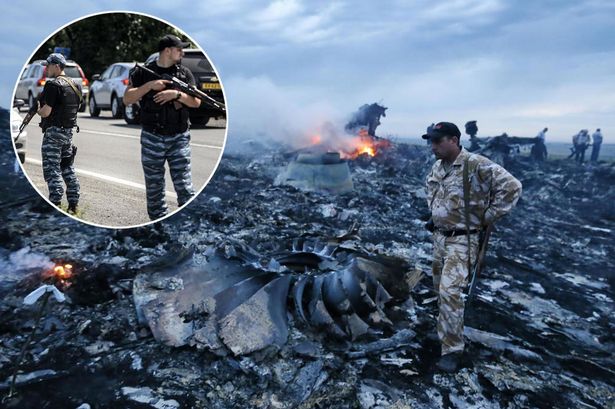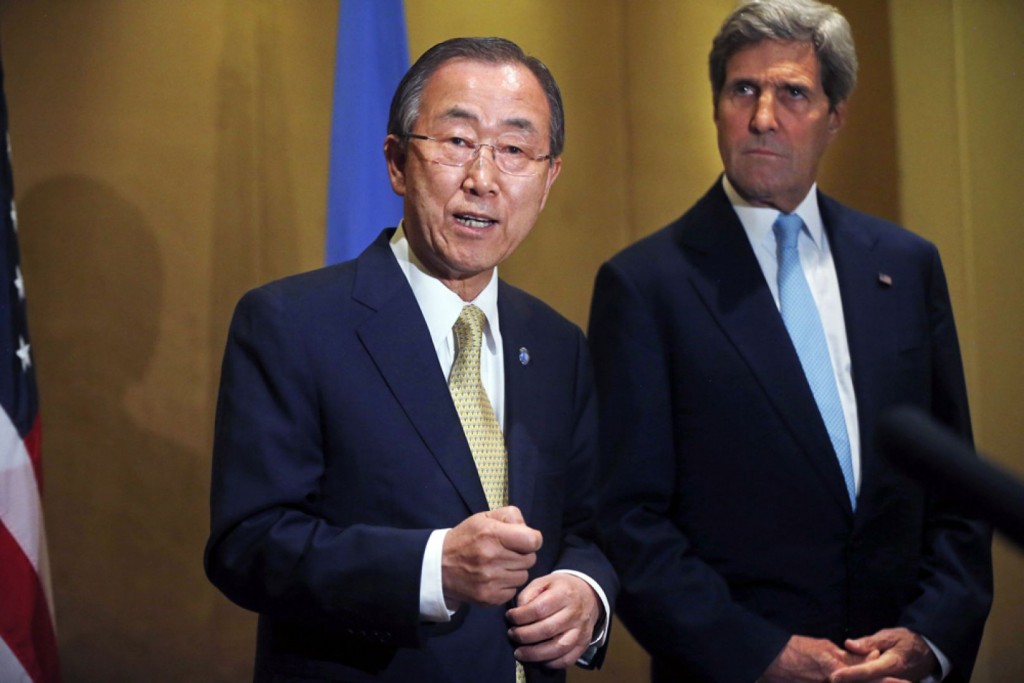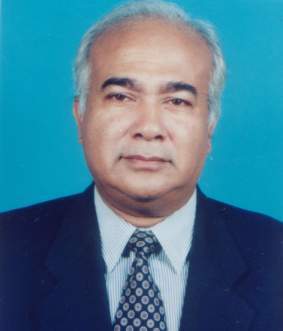e-News® | The NEWS Company… : Colonel Andriy Lysenko of the Ukrainian National Security and Defence Council said rebels also installed artillery in and around the 13.5 square mile site
Pro-Russian separatists blamed for shooting down flight MH17 have mined roads to the crash site, Ukrainian officials said today.
Colonel Andriy Lysenko, spokesman for the Ukrainian National Security and Defence Council, said the rebels had also installed heavy artillery in and around the 13.5 square mile crash site.
“This makes the work of the international experts impossible,” he said. The claims came as Nato said that Russia troops were building up on the border with the former Soviet state. Commander General Philip Breedlove said there “well over 12,000” and the numbers were increasing.
“We watch the materials move from inside the central military district in Russia to the area of Rostov, where they are assembled, then meet, train, and move towards the border and we see them across the border,” he told reporters at Pristina airport after visiting NATO troops in Kosovo.
David Cameron said that he would not launch World War Three over downing of MH17, which had 10 Britons on board. The Prime Minister did threaten Moscow with fresh sanctions unless Moscow bows to international demands and forces the separatists to stop fighting and give access to the crash site. But he added: “We are not about to launch a European war, we are not about to send the fleet to the Black Sea, we are not looking for a military confrontation, but what we should do is use the economic power that we have.”
Mr Cameron was urged to make Nato get tough with Vladamir Putin by MPs today. The trans-Atlantic alliance has been too complacent about the “significant” threat posed by Vladamir Putin, the Commons Defence select committee said in a scathing report. Mr Cameron must use summit in Britain this autumn to make Nato prepare for the threat of new Kremlin aggression, the committee said.
The cross-party group of MPs want Nato troops and military equipment stationed permanently in the Baltic States, a return to large-scale military exercises and improvements in the alliance’s rapid reaction force. The risk of a conventional military assault by Russia on a Nato member state remains “low”, the report said.
But the danger of an unconventional attack using the kind of “ambiguous warfare” tactics deployed by President Vladimir Putin in Ukraine is “more substantial”.
Committee chairman Rory Stewart said: “The risk of attack by Russia on a Nato member state whilst still small is significant.
“We are not convinced that Nato is ready for this threat. Nato has been too complacent about the threat from Russia and it is not well prepared.
“Even worse, the nature of Russian tactics is changing fast – including cyber-attacks, information warfare, and the backing of irregular ‘separatist groups’, combining armed civilians with Russian Special Forces operating without insignia.
“We have already seen how these tactics have been deployed by Russia and its proxies in Ukraine to destabilise a Nato partner state, annex part of its territory, and paralyse its ability to respond.”
He added: “We are not convinced that Nato or the UK Government has fully grasped the implications of this threat.
“The UK has the opportunity at the Wales summit to lead the reordering of Nato. It should drive the planning and capabilities now required to counter such threats.
“It should ensure that Nato begins to train and exercise at a scale to make its deterrence credible.”






































